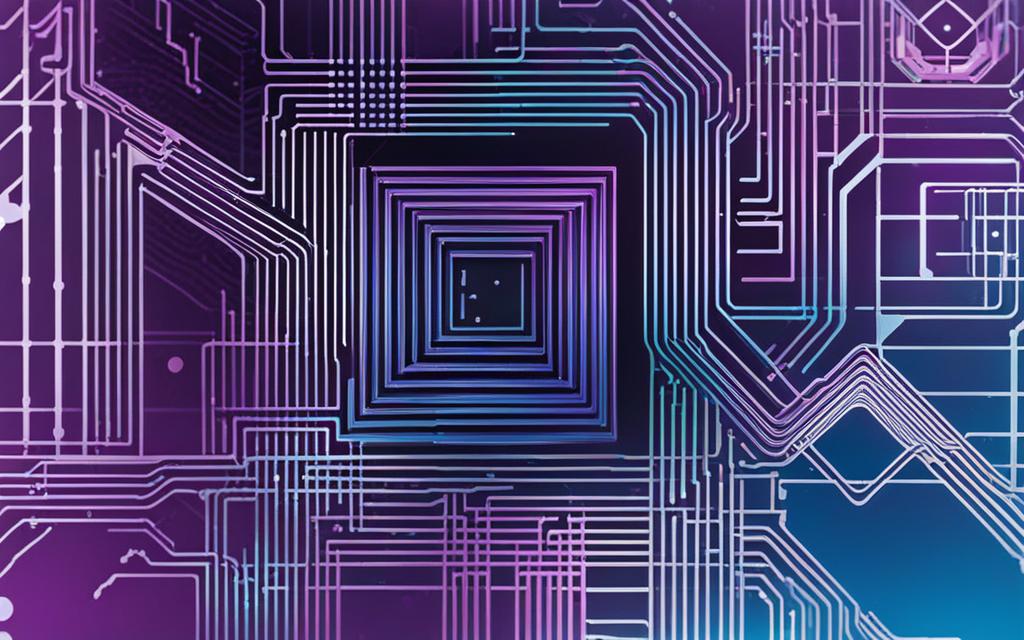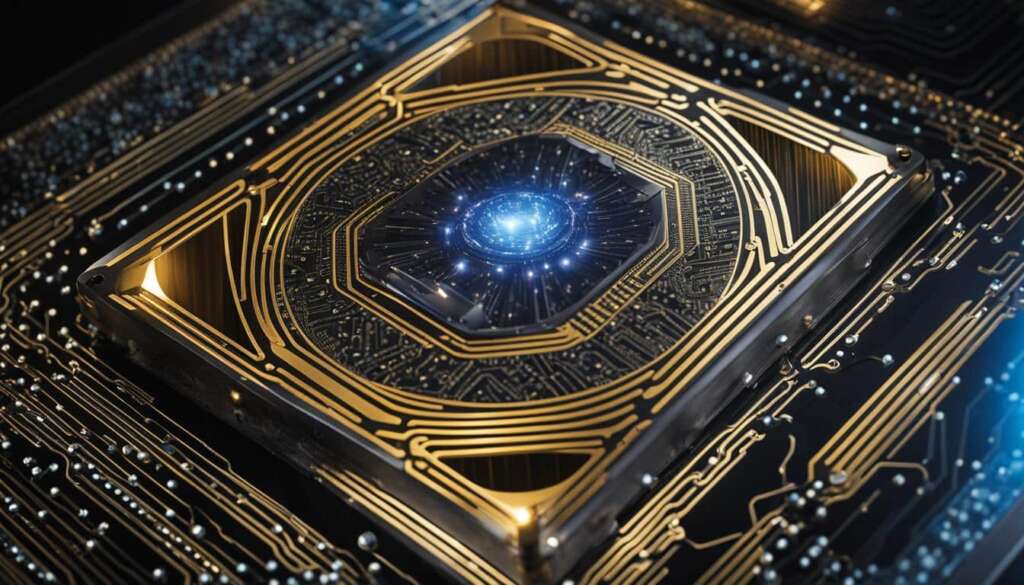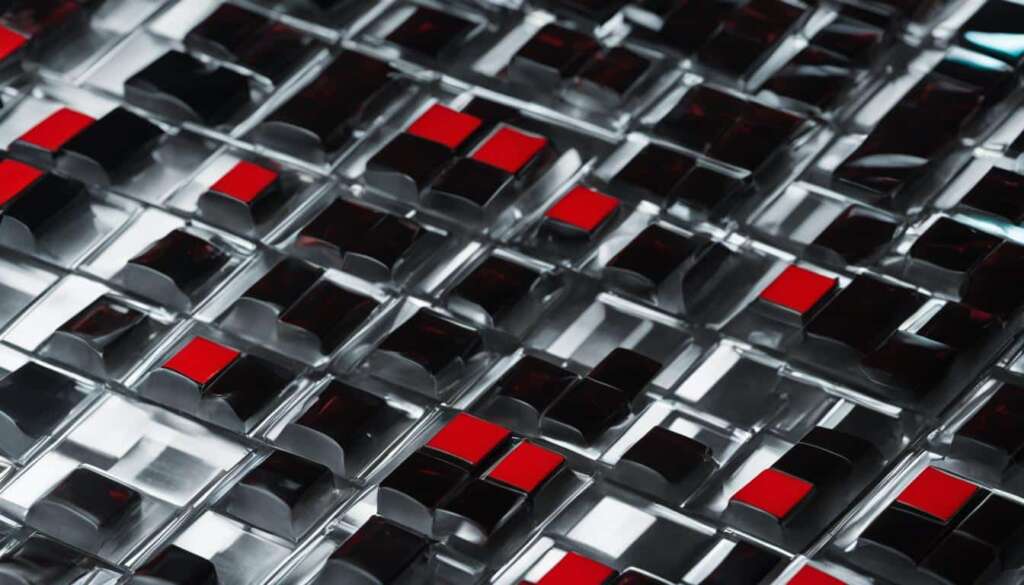Table of Contents
The Indian Institute of Technology Mandi (IIT-Mandi) is making significant advancements in the development of an indigenous quantum computer. This innovative computer utilizes photons to perform calculations at room temperature, eliminating the need for expensive cooling systems. It boasts an “inquisitive mind” and offers 86% accurate solutions without traditional algorithms. IIT-Mandi is scaling up their creation to handle 1,024 tasks simultaneously, and they are developing key components including a single photon source, a phase-sensitive single-photon avalanche diode, and a multipurpose coincidence counter. The potential impact of this technology extends to various fields such as genetics, astrophysics, finance, and weather forecasting.
The Power of Quantum Bits: Unlocking New Possibilities
The power of IIT-Mandi’s indigenous quantum computer lies in quantum bits, or qubits. Unlike classical bits, qubits can exist in multiple states simultaneously, enabling parallel processing at an unprecedented scale. This translates to lightning-fast calculations and opens doors to previously unimaginable possibilities. This breakthrough technology promises to revolutionize various industries and pave the way for new scientific discoveries and advancements.
Parallel Processing and Lightning-fast Calculations
In traditional computers, information is encoded into bits, which can only be in one state at a time – 0 or 1. Quantum bits, on the other hand, can exist in a superposition of states, simultaneously representing 0 and 1. This ability to be in multiple states simultaneously allows for parallel processing, where vast amounts of data can be processed concurrently.
Parallel processing, made possible by qubits, enables lightning-fast calculations that surpass the capabilities of classical computing. By harnessing the power of quantum entanglement and superposition, quantum computers can solve complex problems exponentially faster than their classical counterparts.
Unleashing New Possibilities
The ability of qubits to exist in multiple states simultaneously unlocks new possibilities in various fields. Quantum computers have the potential to solve optimization problems more efficiently, allowing for faster and more accurate solutions. They can also simulate complex physical systems, aiding in the discovery of new materials and drugs.
Moreover, quantum computers offer a new approach to cryptography. The inherent nature of qubits makes them resistant to hacking attempts, enabling secure communication and data protection. This has significant implications for cybersecurity and the protection of sensitive information.
Quantum computing has the potential to revolutionize industries such as finance, logistics, healthcare, and energy. It can enable better investment strategies, optimize supply chains, accelerate drug discovery, and enhance renewable energy technologies.
Charting the Path Forward
As researchers continue to advance the field of quantum computing, the potential applications and impact on society are vast. Leading institutions like IIT-Mandi are at the forefront of this groundbreaking technology, driving innovation and paving the way towards a quantum future.
With the power of quantum bits and the ability to perform lightning-fast calculations, quantum computers hold the promise of transforming industries, solving complex problems, and unlocking new scientific frontiers. The journey towards harnessing the full potential of quantum computing has just begun, and the future looks incredibly exciting.
Overcoming Unnecessary Features: Practicality in Smartphone Technology
In the ever-evolving landscape of smartphones, manufacturers often introduce various features to attract consumers. However, not all of these features prove to be practical or beneficial. It is essential for consumers to understand the difference between necessary smartphone features and unnecessary frills in order to make informed choices when purchasing a device.
While some features enhance the overall user experience and functionality of smartphones, others may be deemed unnecessary and can be omitted without compromising the device’s performance. It is important for consumers to be aware of these unnecessary features to ensure that their smartphones cater to their specific needs without unnecessary frills.
“The key to practicality in smartphone technology lies in understanding the needs of the user and prioritizing essential features over unnecessary additions.”
One such example of unnecessary features is RAM expansion. While it may initially seem like a desirable feature, it often adds unnecessary complexity and increases the cost of the device without providing significant benefits to the average user.
Another feature that falls into the category of unnecessary frills is depth cameras. While they may offer unique photography capabilities, their practicality in day-to-day smartphone usage is limited for most users.
High refresh rates are often marketed as a desirable feature that enhances the display experience. However, for the average user, especially those who primarily use their smartphones for everyday tasks such as browsing, messaging, and social media, the difference in visual smoothness is barely noticeable.
RAM cleaner apps are another example of unnecessary frills. While they claim to optimize the device’s performance by clearing RAM, modern smartphones are equipped with sophisticated operating systems that efficiently manage memory usage. As a result, additional RAM cleaner apps are often redundant and may even interfere with the device’s normal functioning.
Moreover, features such as 8K video recording and cheap macro cameras may seem appealing at first glance, but they are often underutilized by the average smartphone user. These features add to the cost of the device without providing substantial value in practical day-to-day usage.
By understanding the practicality of smartphone features and avoiding unnecessary frills, consumers can make informed choices that are tailored to their specific needs and preferences. Prioritizing essential features that contribute to the overall user experience and functionality of the device ensures a more streamlined and efficient smartphone usage.
Key Points:
- Manufacturers introduce various features to attract consumers, but not all are practical or beneficial.
- Unnecessary frills like RAM expansion and depth cameras can be omitted without affecting user experience.
- High refresh rates and RAM cleaner apps often offer minimal benefits to the average smartphone user.
- Features such as 8K video recording and cheap macro cameras may not be utilized to their full potential.
- Understanding practicality in smartphone technology empowers consumers to make informed choices tailored to their needs.
| Unnecessary Features | Practicality |
|---|---|
| RAM Expansion | Often adds complexity and increases cost without significant benefits. |
| Depth Cameras | Limited practicality in day-to-day smartphone usage for most users. |
| High Refresh Rates | Barely noticeable difference in visual smoothness for the average user. |
| RAM Cleaner Apps | Redundant with modern smartphone operating systems that efficiently manage memory usage. |
| 8K Video Recording | Underutilized by the average smartphone user and increases device cost. |
| Cheap Macro Cameras | Limited practical value in day-to-day smartphone usage. |
Conclusion
IIT-Mandi’s development of an indigenous quantum computer marks a significant milestone in the field of quantum computing. By harnessing the power of photons at room temperature, they have paved the way for transformative advancements in various industries and scientific disciplines.
With its ability to perform lightning-fast calculations and solve complex problems, the indigenous quantum computer developed by IIT-Mandi holds immense potential for genetic research, astrophysics, finance, and weather forecasting.
Furthermore, as consumers become more discerning about practical smartphone features, they can make informed choices and select devices that meet their needs without unnecessary frills. By eliminating features such as RAM expansion and cheap macro cameras, users can optimize their smartphone experience and focus on functionalities that truly enhance their everyday lives.
The emergence of IIT-Mandi’s indigenous quantum computer and the prioritization of practical smartphone features signal a promising future of technological innovation and progress. Through these advancements, we are poised to witness groundbreaking developments and unlock new possibilities that shape the world we live in.
FAQ
What is the Indian Institute of Technology Mandi (IIT-Mandi) working on?
IIT-Mandi is making significant advancements in the development of an indigenous quantum computer that utilizes photons to perform calculations at room temperature.
How accurate are the solutions provided by IIT-Mandi’s quantum computer?
The quantum computer offers 86% accurate solutions without traditional algorithms.
What is IIT-Mandi’s plan for scaling up their quantum computer?
IIT-Mandi is scaling up their creation to handle 1,024 tasks simultaneously.
What key components is IIT-Mandi developing for their quantum computer?
IIT-Mandi is developing a single photon source, a phase-sensitive single-photon avalanche diode, and a multipurpose coincidence counter.
What fields will be impacted by IIT-Mandi’s quantum computer technology?
The potential impact extends to various fields such as genetics, astrophysics, finance, and weather forecasting.
What is the significance of quantum bits (qubits) in IIT-Mandi’s quantum computer?
Quantum bits can exist in multiple states simultaneously, enabling parallel processing and lightning-fast calculations.
What can be omitted as unnecessary features in smartphones?
RAM expansion, depth cameras, high refresh rates, RAM cleaner apps, 8K video recording, and cheap macro cameras are considered unnecessary features in smartphones.
Why is it important to be discerning about smartphone features?
Being aware of unnecessary features empowers consumers to make informed choices and select devices that cater to their needs without unnecessary frills.













